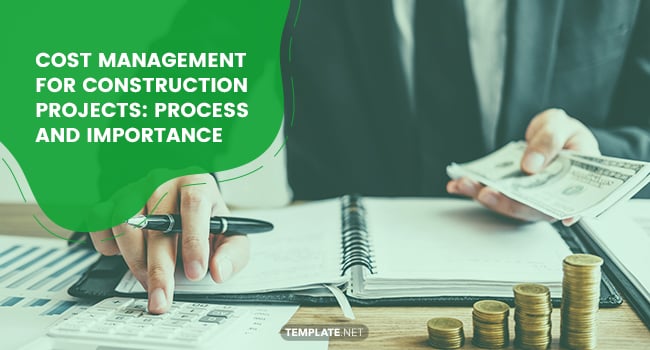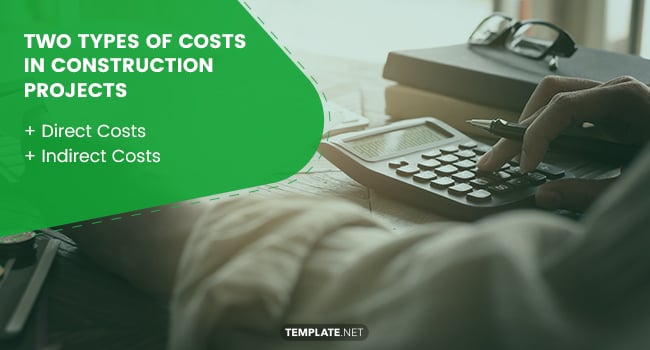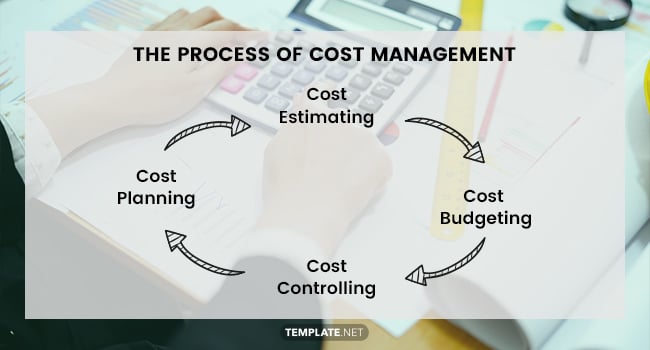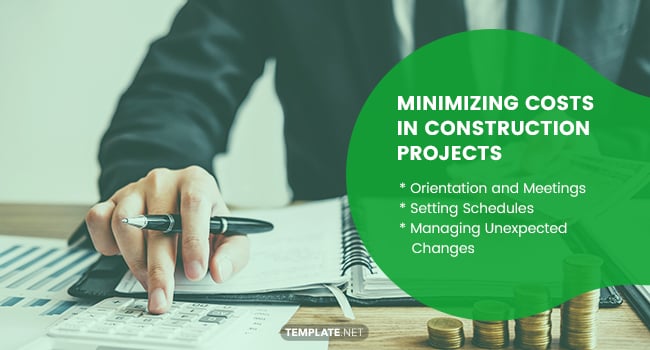How to Manage Costs in Construction Business
Various construction project plans commence every day in all parts of the globe. Despite the differences in their design, goals, and project management, they all have one thing in common—an accurate budget estimate to meet the requirements of the plan. As most annual budgets or monthly budgets are, it has a specific allocation of funds for the convenience of the departments in the company or construction site. This fixed budget weights the methods of the construction project, and it is the responsibility of the people in the project team to include cost management in their plans. To learn more about the processes and significance of cost management in construction projects, read the article below.

How to Manage Costs in Construction Business
Constructions and the Civilized World
The apartment complex, condominiums, and other residential homes in the corner of well-known streets don’t just appear in a blink of an eye. As with commercial buildings lining up the boulevards, the process of constructing these establishments takes time and a lump sum of budget. The formation of the establishments and infrastructure that make the life of citizens easier is a risky and robust business. That is to say, the construction industry has a lot of surprises. Nevertheless, the sector is one of the essential components in making sure that society can keep up with the changes in the modern world.
What is Cost Management?
Cost management is simply the different procedures undertaken by the project planners to estimate, allocate, and control the flow of funds in a construction project. The planners, namely the engineers, contractors, architects, and supervisors, do several processes to make sure that enough funds are available for the duration of the project. The people-in-charge (or hired budget planners) do estimations on the possible costs and designate the approximated expenses evenly and correctly among parts of the project plan. Budget planning and documentation are crucial in making finance tracking easier for management. Thus, avoiding the problems of going over the budget and purchasing additional tools or equipment.
Moreover, cost management takes effect even before the start of the project. During the planning phase of the project, the people involved will have started with drafts on the budget. The contractors and subcontractors will present the budget estimation proposal and cost report to the heads for checking. Cost management has to be sure that the information on the document is accurate and up-to-date. Depending on the client, the specified budget will either be based on data provided by the team or the allowed funds of the owner. As a whole, cost management is relevant in averting budget delays and problems when the construction project starts.
Why is Cost Control Necessary in Construction Projects?
Construction projects continue to incur costs until its completion. Sometimes, even when the project is complete, it can still have additional expenses. Each project budget has limitations—an extent mentioned in contracts between the owner and general contractors. With that, project managers have to utilize methods that reduce overruns and excessive spending. Cost control is one of the essential approaches that help project leaders in determining ways to avoid going beyond the allotted budget and making sure that the funds fit the needs of the project. The importance of cost control boils down to how it monitors the expenditures within the construction site. Through collecting and measuring data, the planners can come up with a plan that caters to a limited budget while keeping the standards set by the company.
By using cost analysis worksheets, the contractors can have a manageable strategy of setting budget goals for the particular parts of the project. Furthermore, cost control is also important in forecasting material and labor costs. While finding options to orderly map out the plans, the planners also have the responsibility of maintaining the quality of the structure—choosing the materials for the project and ensuring its high-quality standards. Again, cost control remains to be a vital plan of action to refrain from going over the limits.
Two Types of Costs in Construction Projects

Before making the cost control plan, the management team has to determine and list down the expected costs in the project. Besides the building costs analysis prepared by engineers and architects, the contractors also have to use the results from the construction bid estimate. Keeping the balance between the proposed budget and the generated budget plan is essential for the people involved in the construction project. When making the cost estimate for the project, the team has to recognize the two types of expenses in construction projects. With costs placed in the right section, the planners can plan out protocols to avoid overspending and overruns during the construction of the establishment.
Direct Costs
Direct costs are the expenses related to the building process of the project. It means that anything that affects the physical aspect of the infrastructure is a direct cost. The construction material such as wood, steel bars, cement, and paints are under direct costs. Moreover, the pieces of equipment, which affect the operations of the project, is also part of the direct costs. The labor for the construction workers also falls here as their work schedules have a direct impact on the progress of the plans. For planners, all the components that make up the direct costs should be in one document.
Indirect Costs
On the other hand, indirect costs are the expenditures that do not exactly affect the completion of the construction project, when speaking of the physical structure itself. Instead, indirect costs are the funds for administrative operations. Spending budget for the people running the business will organize the legal works that matter to the company. Office costs like paper and printing processes are also indirect costs that have an impact on the procedures outside the construction site. Most planners have a cost breakdown sheet to write down the expenses of the administration during a specific time frame. It is crucial to remember that without well-refined management, the company will not flourish.
The Process of Cost Management

The focus of cost management is primarily finding an effective way of handling construction funding for a particular project. By looking at the other methods and analyzing its relevance and positive effects on the project, cost management can figure out the approaches that work best with the current plan. Besides, cost management includes different activities to come up with a sufficient cost estimation plan for the benefit of the construction project. In highlight, the cost management team plan and estimate the funds to make sure the finances will be adequate throughout the whole construction process. They also approve the budget proposals submitted by subcontractors and other workers in the project. Aside from that, here are the four processes of cost management.
Cost Planning
During this process, planners look at the overall scope of work to have an authentic understanding of the needed resources. It includes recognizing the type of resources that matter to the project. For instance, the planning phase involves pinpointing or measuring the required human force and construction materials for the completion of the project. Activities that workers will undertake and tasks for the officers are also part of the planning stage in the construction project. Through breaking down the structure and plans of the engineer and architects, the planners can string out a useful strategy to meet the differing requirements of the leaders and the owner. Cost management plays a vital role in this phase as they direct the costs for each operation in the construction project.
Cost Estimating
When the list of resources are complete and ready, the next step is cost estimating. For this section, planners provide accurate information about the costs of the materials and the other expenses that will occur throughout the construction of the infrastructure. By doing cost estimating, the project team can eliminate unnecessary expenses or find alternatives. It is essential to note that cost estimation is an approximation of the proposed budget and not the actual funds yet. Looking at cost analysis and building plans, the cost management planners can spend time giving information to use for the next step.
Cost Budgeting
Using the estimates prepared by subcontractors and later revised by the cost management team, the next process is the calculation of the actual budget for the construction project. After the assessment of all the costs, the budget planners can add or subtract items. They can also modify the labor budget according to the instructions of the client or construction company. However, do note that before the budget planners can change anything in the document, they have to consult the engineers and architects. Even when the clients want to cut down the budget or lessen expenses, the standards set for construction materials have to remain intact using quality control plans with the budget plans.
Cost Controlling
Cost controlling, which is the last part, measures the inconsistencies with the costs of production materials. Due to the changes in the market, some construction tools and components may increase prices. Since projects follow a schedule, purchasing all the materials at once is not advisable. In that case, the tendency of fluctuating prices is possible. When that happens, cost management controls outgoing purchases to avoid overspending and other problems. The cost management has the responsibility of monitoring all changes happening at the construction site, especially with regards to the adjustments in the budget plans.
Minimizing Costs in Construction Projects

Despite the assumption that construction costs are impossible to reduce, that is entirely wrong. There are different ways to lessen the expenses of construction projects. Although it involves extreme planning and patience—with the aid of cost management plans too—the planners can create schemes that will be convenient for the client. Sometimes, the contents of the contractor business plan to see the objectives of the other members of the team. It would be excellent and preferable that the workers in the team have the same goals when it comes to the completion of the construction project. When talking about minimizing the expenses in the project, it’s crucial to know the thoughts of the engineers, architects, and planners. Instead of directly giving out orders, it’s best to have the views of these employees. Here are some quick points that help planners in formulating plans that lower the costs incurred during the construction of the edifice.
Orientation and Meetings
Through orientations and meetings, the people in the workplace have an idea about the plans of the cost management department of the construction company. This opportunity is also vital in relaying the message of reducing the expenses of the project. With that, the workers will remain vigilant in handling the materials and equipment. When the laborers and officers are aware of the demands of the owner or general contractor, they can find simple ways of minimizing wastes.
Setting Schedules
Schedules are an indispensable part of construction projects. Without these documents that organize the procedures within the bounds of the construction site, the operations will have disorientation. Furthermore, disruptions on the set activities will be additional costs on the part of the owner or construction company. Thinking about it, setting strict schedules with a little leeway often saves the trouble of going over the allowed costs. When construction planners make schedules, they have to spend time forming the most efficient process that saves time, energy, and money.
Managing Unexpected Changes
Having a cost plan template proves to be useful in tracking the inflow and outflow of money in a construction project. And when changes happen in the market, planners can easily adjust and manage the contents in the construction plan. Besides that, contractors have to keep in mind that unexpected shifts can happen, especially when the project takes long months or years to finish. The cost management team can minimize overspending when they are wary of the price variations in the market.
Using Software for Cost Management
With the availability of online or digital tools that assist planners with their goals, the procedures of construction became more comfortable. In recent years, new methods in planning and strategizing emerged to make the workload of engineers, architects, and contractors easier. It is not wrong to say that technology is an ally when it comes to relieving some stress off work.
- For construction companies, modern methods of cost tracking and planning surely decrease errors in calculations and estimations. Monitoring the progress of the tasks at hand is also manageable with the use of different construction software. Indeed, it is safe to say that work is better when the software is accessible to do the gritty work.
- For cost management, having available software—whether online or offline—helps in the supervising the different areas in the construction site. Head supervisors and engineers can send their accomplishment reports and daily reports through the software, a paperless method that saves time. In another instance, the subcontractors can submit cost estimate worksheets using the software instead of handing a printed copy. Others might say that an investment in a software application offers no advantage for the construction company. However, this particular investment will serve a purpose not only in the current plan but also in upcoming construction projects. So having an application software is relevant and beneficial for the construction companies.
- Of the many things that affect the processes of construction projects, budgeting and cost management is an important aspect that needs utmost attention and care. Clients have limitations when it comes to their budget, and it is the prerogative of the hired manager and contractors to meet expectations along the lines defined by the owner. Project cost estimate continues to be the number one priority of the budget planner when the plan is about to commence. After all, projects need a plan. And the proposed plan should be foolproof and appropriate. With cost management, expense tracking for the direct and indirect costs is less complicated. Having this system in the construction company will surely benefit the people running the business. So, construction companies should take the opportunity to invest in cost management and hire people to continue the budget planning for the future construction projects of the enterprise.
The construction industry thrives on withstanding the different challenges in the market. From the unforeseen shifts in prices of materials and tools to the demands of other markets in the business sector, the construction industry does its best to remain atop of the pyramid. In general, the construction industry faces a lot of risks. The safety hazards in the construction site continue to be a dilemma in the industry. The distinctive seasons can also affect the processes of the construction company. Even when companies experience these things, they still continue to get more workers and have more construction projects all over the country.






